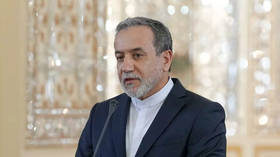Eurozone accepts new member

The Council of the European Union has approved Croatia’s bid to adopt the euro from January 1, 2023. The Balkan country cleared a final hurdle before becoming the 20th member of the Eurozone.
“One of the three legal acts sets the conversion rate between the euro and the Croatian kuna at 7.53450 kuna per 1 euro. This corresponds to the current central rate of the kuna in the exchange rate mechanism,” the EU Council said in a press release.
The step marks the first expansion of the currency bloc in almost a decade. The last EU nation to join the Eurozone was Lithuania in 2015.
“Our citizens and entrepreneurs will have concrete, direct and lasting benefits from Croatia’s entry into the euro area. To the greatest extent, the currency risk will disappear, Croatia will be more attractive and safer for investment in times of crisis,” said Boris Vujcic, Governor of the Croatian National Bank in a statement.
Prices in Croatia, which joined the European Union in 2013, will be displayed in both currencies starting September 5, and used in parallel throughout next year.
Croatia’s economy, which is ranked among the bloc’s weakest, relies heavily on tourism revenue, drawing several million European and other global visitors each year. Adopting the euro means that visitors coming from the Eurozone will no longer need to exchange their cash for local currency.
Launched back in 1999 among 11 countries including Germany and France, the euro has gone through seven previous enlargements, starting with Greece in 2001.
For more stories on economy & finance visit RT's business section













